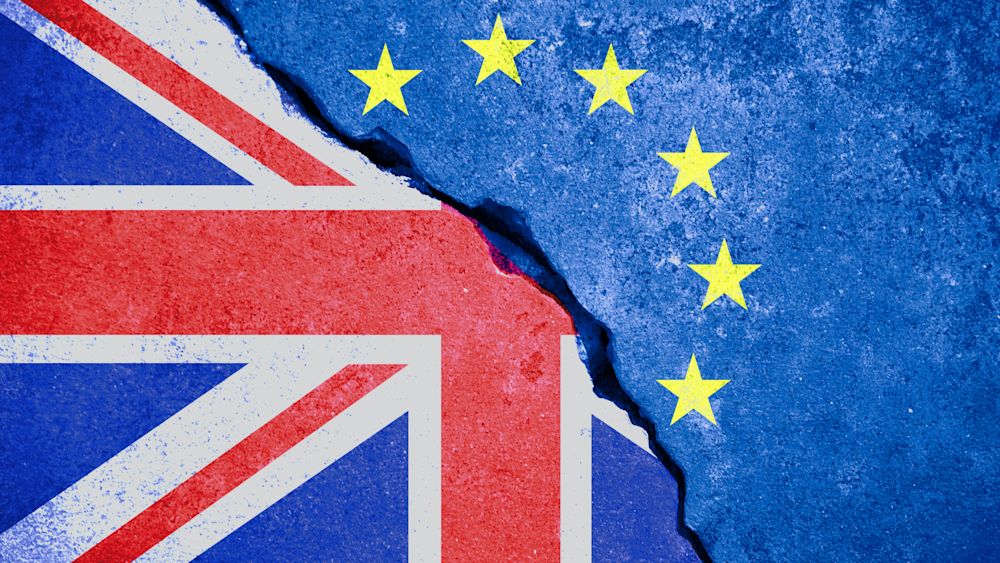Five New Considerations for British HR Managers Post-Brexit
Table of contents
Now that the freedom of work and movement which Britain once held with its neighboring countries through a EU membership is gone, the British workforce, ever-changing since the referendum took place in 2016, will continue to morph.

The end of the Brexit “transition period” this month has signalled the beginning of a new path and political relationship between the European Union (EU) and the UK. The two sides struck a last minute trade deal a few days before New Year’s Eve in December, narrowly avoiding a “no-deal Brexit.” The threat of “no-deal” was deemed a worst case scenario by many economists worldwide, as it would've hit the UK with high taxes and tariffs should they have attempted to continue trade within the continent.
Now that the freedom of work and movement which Britain once held with its neighboring countries through a EU membership is gone, the British workforce, ever-changing since the referendum took place in 2016, will continue to morph. According to the Chartered Institute of Personnel and Development (CIPD), while employment in the UK had been on the incline from 2016 to 2019, recruiters reported increasing difficulties, partially because “the increase in the number of EU citizens that have come to the UK to work has not risen in line with the overall employment growth in recent years.”
The end of the transition period has introduced a new working world in the UK - here’s what it could mean for HR departments across Britain.
1. Employee morale will need prioritising
Foreign policy has always had an impact on how companies seek out and hire talent. However, when something like Brexit takes centre-stage with very obvious repercussions, it’s difficult for it to not only affect perceptions of management’s hiring decisions, but also inter-colleague dynamics and perceptions of fellow employees.
Post-Brexit ‘tensions’ in the workplace have been in discussion since 2016, when the referendum took place, however studies have shown that on a national level, ethnic minorities continue to face growing discrimination in Brexit’s wake, with anti-immigrant rhetoric steadily growing. This isn’t only because Brexit has made it more difficult to hire European migrants; some have also accused the Leave campaign of emboldening those with intolerant attitudes towards immigration and ethnic minority groups.
The economic volatility faced by the pound (£) as a result of the newly agreed “deal” this month, which many criticised as leaving the UK in a much worse position, may well worsen this dynamic.
In addition, it will also affect salaries, bonuses, and pension plans. A post by professional services provider PwC explains that this is a “here and now” issue which needs immediate attention with employees. Beyond letting both domestic and international staff know that the company stands with them, tangible reassurance will be needed to help employees “deal with practical concerns like residence applications.”
2. Workforce planning will become key
“The term ‘workforce planning’ is set to become as popular as ‘furlough’ in the UK, as businesses - whether they have EU staff in the UK or want to recruit skills from the EU - work to understand the new rules of the game,” says Dean Hunter, founder of HR consultancy Hunter Adams, in an interview with The Org.
Workforce planning, the system in which the supply and demand of employees is analysed, forecasted, and managed, seeks to ensure that any skills gaps are tackled at the right time and place within any organisation. Hunter explains that with certain UK industries relying heavily on international labour pools, like the hospitality and healthcare sectors, managing immigration and workforce planning is likely to become top of the HR agenda.
“From workforce planning comes resourcing strategies," he says. "To manage the future pipeline of employees HR will need a certain amount of creativity and a solutions-driven approach."

3. New incentives will be needed for international talent
Without its EU membership, the UK’s shores look less welcoming to a European workforce and include less incentives for migrant workers. This means a skills shortage that’s been steadily discussed since 2016 is now coming into sharp focus and will need urgent solutions.
The National Health Service (NHS), currently facing a staffing crisis as a result of the pandemic, is particularly set to suffer from the skills gap. Some 5.5% of all NHS staff are European nationals, and their ability to work in the UK will gradually become less appealing, as the growing health crisis will demand more healthcare professionals. The Health Foundation has said that “England will need to be able to recruit an average of 5,000 nurses a year from outside the UK between now and 2025.”
HR blogs and think tanks have encouraged businesses to apply for sponsor licenses, explore more options when it comes to remote and flexible working, as well as investing in longer-term employment schemes (such as apprenticeships and graduate programs) to show willingness to keep people on.
4. Keeping up with changing laws will be a challenge
It may seem obvious that companies need to comply with the law - but many HR departments will find themselves caught up in the web that is post-Brexit employment law.
“A considerable amount of UK employment law originated from the EU,” Hunter said. “Some may be amended, and some removed completely - so HR professionals will need to ensure they are keeping up to speed with an already complex and ever-changing area of the law.”
Even though the transition period is technically finished, the actual period of transition is far from over. Just last week, the UK’s business secretary Kwasi Kwarteng told Members of Parliament (MPs) about plans to review and potentially scrap a number of EU-derived employment laws. Brexit has nudged the UK’s employment laws towards a metamorphosis that HR departments must keep a close eye on.
5. Location, location, location
A good trading relationship across a number of sectors has been a tense topic for as long as the negotiations over the Brexit deal have been going on. However, if British companies want to mitigate the effects of the additional admin, red-tape, and cross-border checks which are bound to deter some European countries from trading, there is a chance they may have to branch out and maintain a multinational presence with offices outside of the UK. The burden of additional checks decreases the desire to trade on both sides - UK retailers are even considering burning clothes shipped to EU customers “because of extra costs and red tape resulting from Brexit.”
In October of last year, the BBC reported that industry sources said, “Many EU companies do not want the additional risk and cost of being responsible for compliance with customs procedures,” meaning that the pressure to facilitate ease of trade will fall largely on British businesses. Ensuring that HR departments understand and facilitate those cultural differences and similarities as they happen in real-time is vital.

--
The Org is a professional community where transparent companies can show off their team to the world. Join your company here to add yourself to the org chart!
In this article


The ORG helps
you hire great
candidates
Free to use – try today